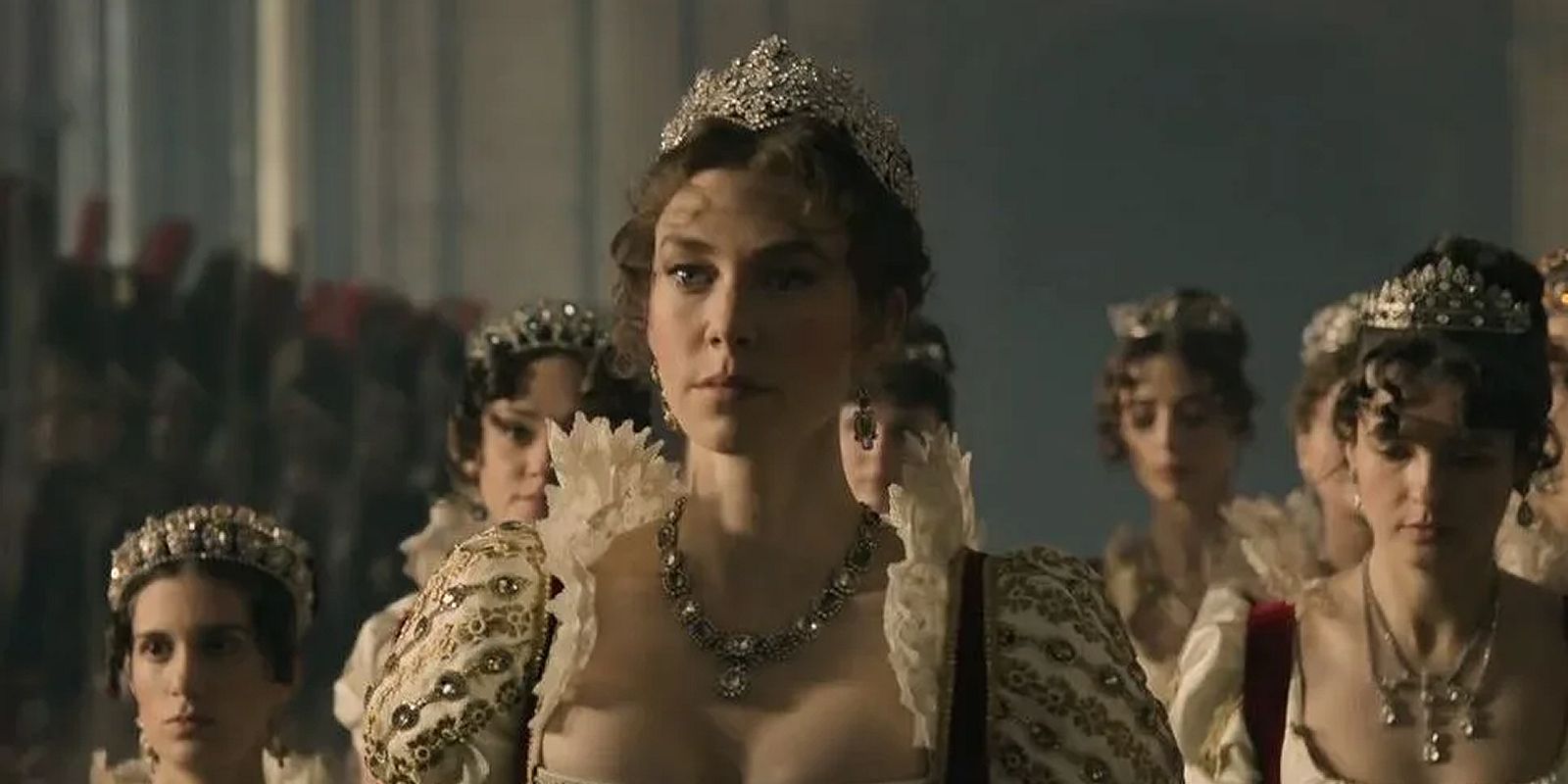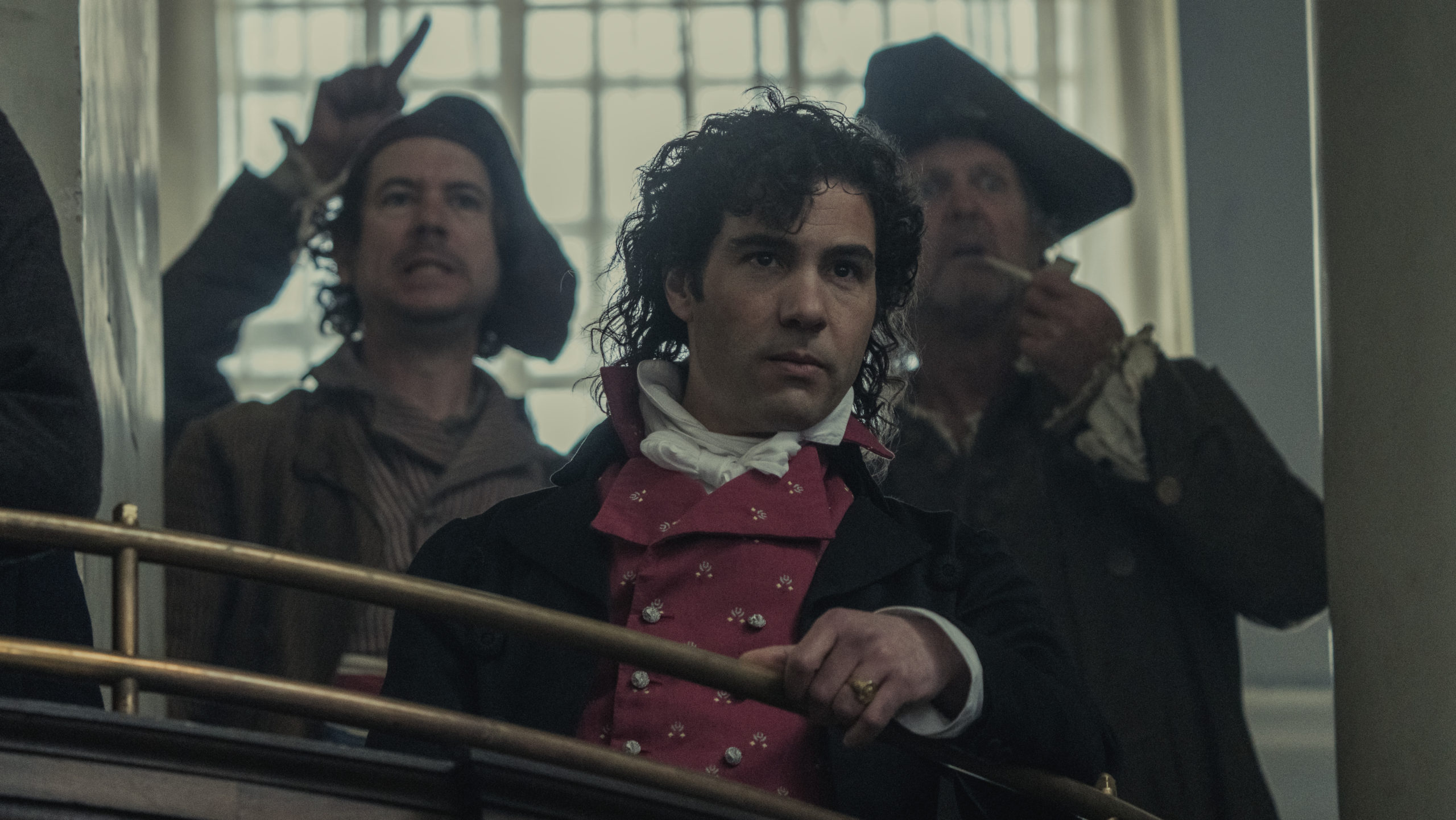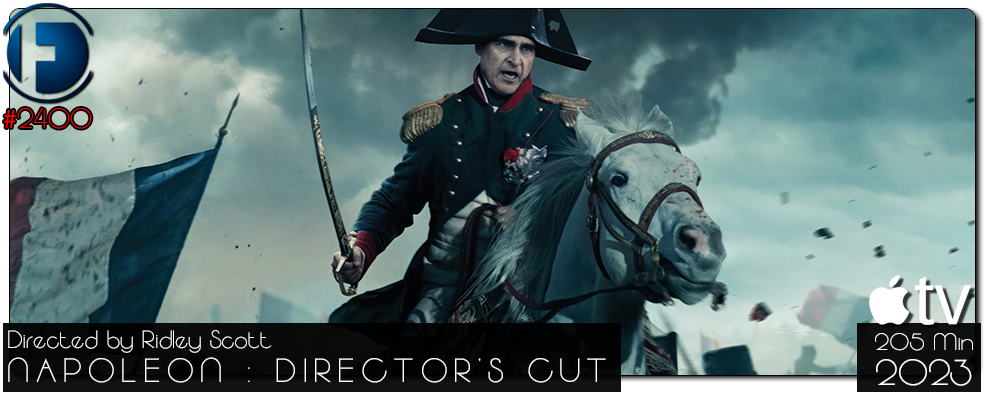Movie Review – Napoleon: Director’s Cut
Principal Cast : Joaquin Phoenix, Vanessa Kirby, Tahar Rahim, Rupert Everett, Ben Miles, Ludivine Sagnier, Matthew Needham, John Hollingworth, Youssef Kerkour, Sinead Cusack, Julian Rhind-Tutt, Phil Cornwall, Edouard Philipponnat, Jannis Niewohner, Miles Jupp, Edward Bennett, Ian McNiece, Paul Rhys, Catherine Walker, Gavin Spokes, Mark Bonnar, Anna Mawn, Davide Tucci, Sam Crane, Scott Handy, Tim Faulkener, Abubakar Salim, Kevin Eldon, Sam Troughton.
Synopsis: An epic that details the chequered rise and fall of French Emperor Napoleon Bonaparte and his relentless journey to power through the prism of his addictive, volatile relationship with his wife, Josephine.
********
This review is based on the extended Director’s Cut of Napoleon, now available on Apple TV+.
Ridley Scott, now deep into his golden years, remains a filmmaker of grand ambition and even grander visuals—though Napoleon proves his Achilles’ heel is still character depth. The Director’s Cut of this three-and-a-half-hour epic swings for the heavens, chronicling the French emperor’s meteoric rise and fall with all the subtlety of a cannonball to the face. Joaquin Phoenix’s Napoleon is less a titan of history than a brooding man-child, while Vanessa Kirby’s Josephine exudes icy elegance. Together, their romantic chemistry? Let’s just say it rivals a spreadsheet. Scott’s bombastic battle sequences dazzle, but when the smoke clears, what’s left is a gorgeously hollow shell—a Gladiator without the heart.

The plot stitches together Napoleon’s greatest hits: the Terror, Austerlitz, Waterloo, and his toxic love affair with Josephine. Phoenix growls through the role like a man perpetually mid-indigestion, his tactical genius overshadowed by tantrums. Kirby, all regal poise, deserved better than a script that reduces their legendary passion to stiff exchanges and joyless rutting. (Historical spoiler: Their marriage ended because she couldn’t bear an heir. The film ends because we couldn’t bear another scene of them faking affection.)

Scott’s direction is a paradox. The battles—chaotic, blood-soaked ballets—are masterclasses in orchestrated carnage. A horse explodes via cannonball early on, a cheeky promise of the carnage to come. Yet these set pieces feel like islands in a sea of political jargon and rushed historical footnotes. David Scarpa’s screenplay crams 30 years of revolution, war, and marital discord into a runtime that still somehow drags. Abel Gance needed five hours to deify Napoleon; Scott condenses it into three, swapping reverence for cynicism and leaving nuance on the cutting-room floor.

Visually, Napoleon is sumptuous. Darius Wolski’s cinematography paints 18th-century Europe in mud, gold, and blood, while the costumes could single-handedly fund a small nation. But Martin Phipps’ score lacks the operatic sweep the material demands, and the editing—frantic during battles, glacial during dialogues—leaves the film tonally adrift. Phoenix’s Napoleon oscillates between strategic genius and petulant brat, his softer moments landing with the grace of a dropped baguette. Kirby, meanwhile, elevates every scene she’s in, though even she can’t thaw the script’s emotional permafrost.

The Director’s Cut amplifies everything: more battles, more politics, more Phoenix scowling into middle distance. Yet without a beating heart, Napoleon becomes a museum piece—exquisitely crafted, utterly lifeless. Scott’s hubris is palpable; you can almost hear him mutter, “Look how epic I can make a treaty signing!” But epic scale can’t mask the void where soul should be. For a film about a man who conquered continents, it’s ironic that the biggest battle here is staying awake through the third hour. In the end, Napoleon is less a biopic than a $200 million shrug. Gorgeous, grandiose, and as emotionally resonant as a marble statue—Ridley Scott’s latest proves he’s still a master of spectacle. Just don’t ask him to make you care.


Great review